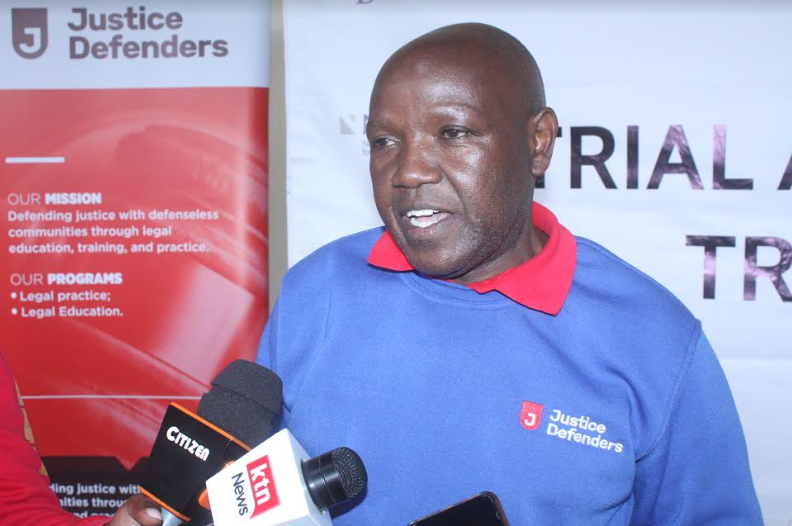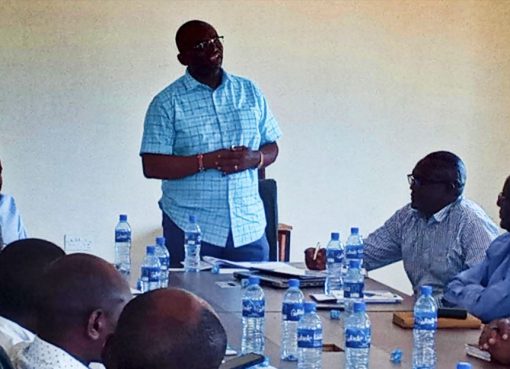As of December 5, 2022, Kenya had a total of 58,887 inmates, including those on pre-trial and remand. They are held in the country’s 134 penal institutions. This is according to a report released by the Office of the Registrar of the Judiciary in December 2022.
The correctional facilities in the country’s main role is to rehabilitate these inmates and reintegrate them back into society as good and useful citizens who can help build the Nation.
This is because prisoners are often rejected and despised by society because of their past and the ills they have committed against society.
This is done by encouraging the prisoners to enrol in classes while serving their sentences to continue with their normal education, and some have indeed excelled and registered impressive performances in the national exams.
Others are encouraged to enrol in tertiary education, where they are imparted various skills, such as carpentry, among others.
We spoke to one of the beneficiaries of this rehabilitation, who is in turn using his professional training as a lawyer to impact the lives of the convicts at Naivasha Maximum Prison.
For 53-year-old Stanlaus Musembi, a 2012 robbery with violence conviction spelled doom for him after he was committed to serve a life sentence at the Naivasha Maximum.
It all started at his workshop in the precincts of Nakuru town in 2012, where he was working on clients’ cars, but little did he know that this would book him a ticket to spend the rest of his life behind bars at that time.
Musembi had been working at the Pyrethrum Board of Kenya (PBK) as a mechanical engineer after completing his diploma at the Kenya Industrial Technical Institute (KITI) in Nakuru when, in 2004, things took a different turn when the father of three was retrenched from the organisation he had worked for since 1991.
This turn of events forced the technician to go back to the drawing board, hence the decision to open an automotive garage in order to make ends meet.
It was during this time that Stanlous made new friends, some of whom became his clients, bringing their vehicles for repairs, but these friends later started engaging him in their criminal activities, and he found himself getting involved in altering the particulars of stolen vehicles.
This would later land him in trouble after a vehicle that was stolen in Narok was traced by police to his garage in Nakuru, leading to his arrest and arraignment in court in 2012.
It was while at the Naivasha prison in 2014 that Musembi met with Justice Defenders (JD), an organisation that offers legal training to inmates, who in turn provide legal aid to fellow prisoners.
Musembi, who had now served two years of his term, took up the opportunity to study law facilitated by the University of London through distance learning and graduated with a diploma, which was later upgraded to a degree through the same training.
The programme, according to Musembi, imparted him with skills and knowledge to represent himself and argue his cases, and he has been able to reason in court and vindicate himself in several of the accusations levelled against him.
As he waits for the hearing and determination of his appeal, Stanlous is hopeful that he will secure his freedom, after which he intends to proceed to law school to become a full-fledged advocate of the high court.
His experience has seen him record several success stories under his name after helping fellow inmates either secure their freedom or reduce their sentences, something he is proud of.
Joan Wachira, a legal officer at Justice Defenders, says the aim of the programme is to equip inmates with paralegal training and awareness in order to ensure that much needed legal aid is extended to those in need.
Wachira, who serves at the Nakuru Women’s’ Prison JD office, adds that the programme has had an immense impact, enabling convicts to bargain for their jail terms and bail for those whose cases are ongoing and also educating them on the existence of Alternative Justice Systems (AJS).
AJS has been lauded as one of the ways in dispute resolution that helps save time and resources while helping reduce the backlog of cases in court in the quest for justice. The AJS handles cases that are not criminal in nature but which come to court for adjudication.
The ripple effect of the training, according to Wachira, has seen prisons fairly decongested, but he says that it’s not enough as they seek to expand the programme to other prisons in the country from the current 17 facilities.
By Mabel Keya-Shikuku




